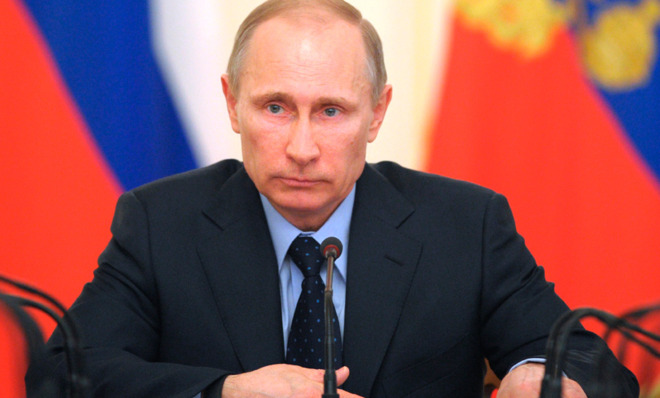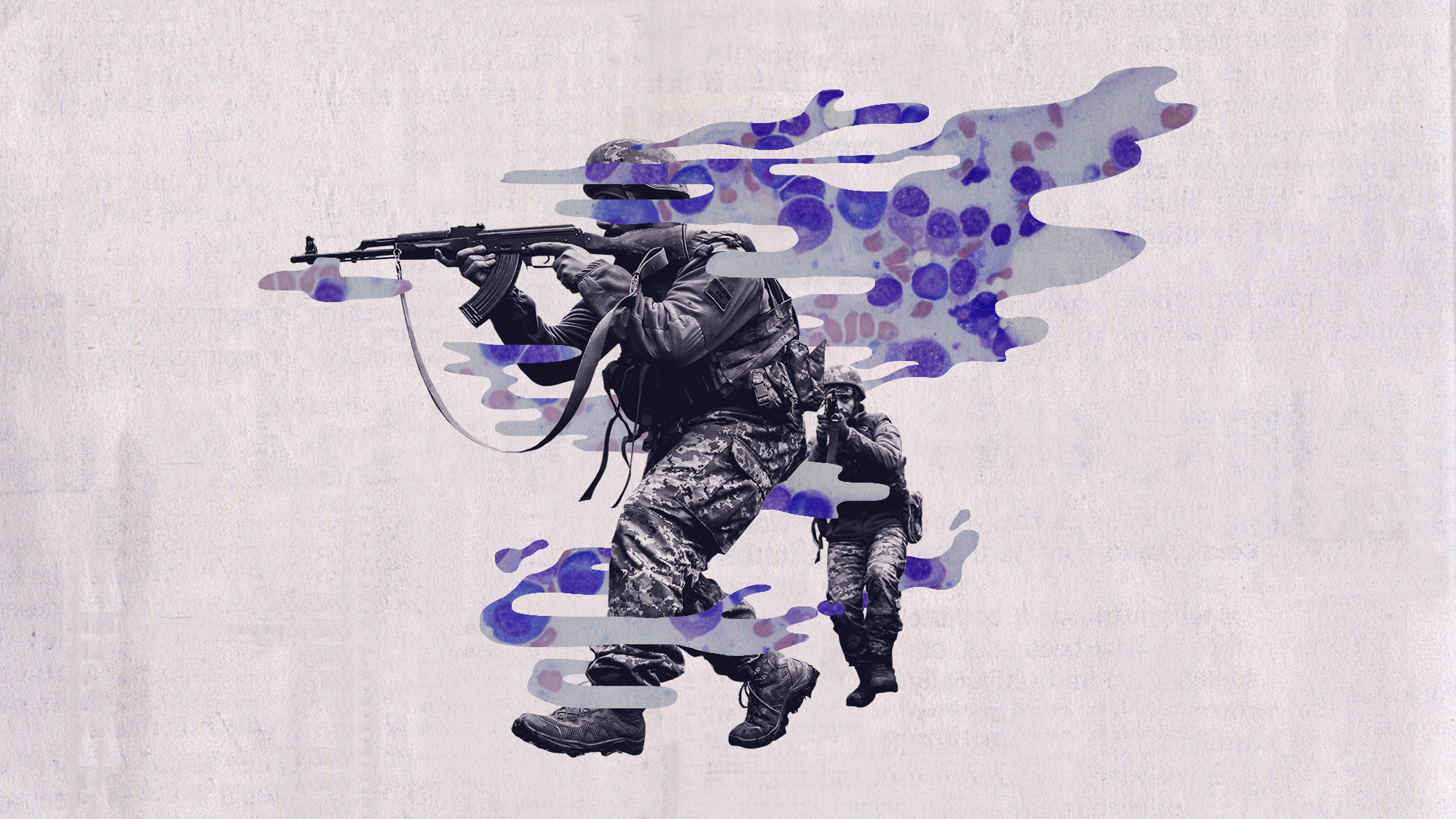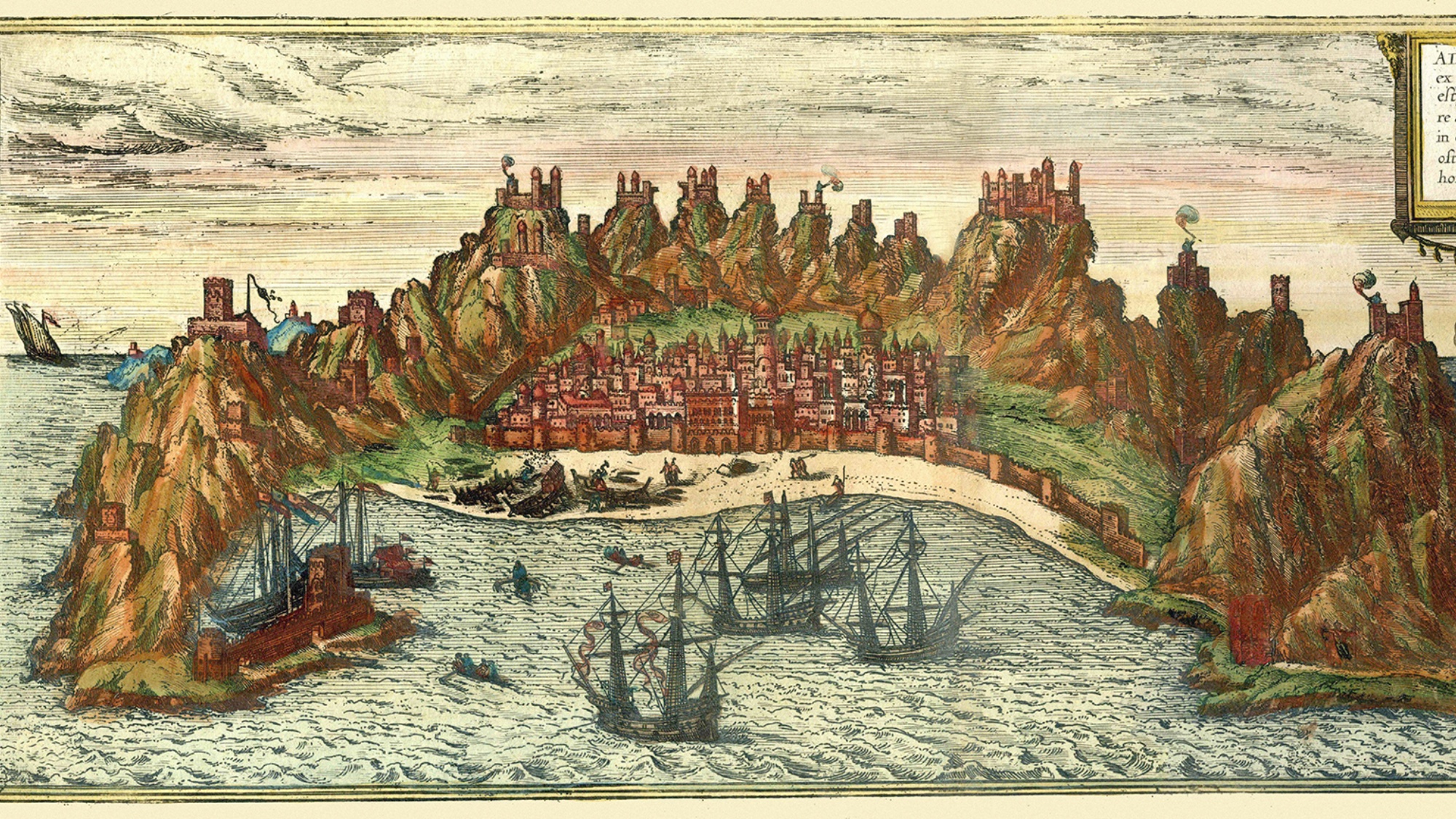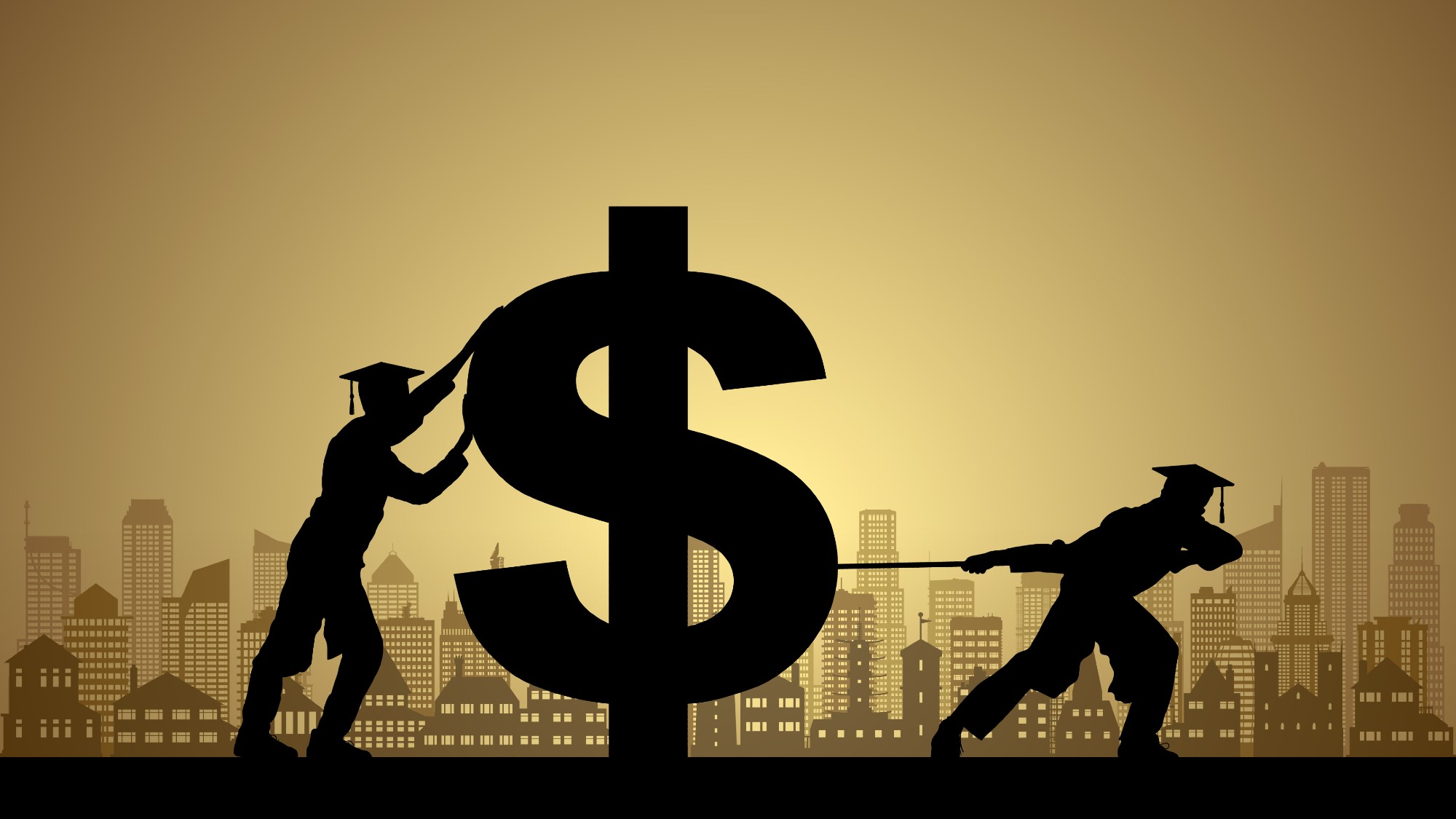Putin's 'Russian exceptionalism'
The Russian president isn't crazy. He's blinded by a strangely familiar ideology.


Is Vladimir Putin nuts? After a phone conversation with the Russian president this week, German Chancellor Angela Merkel reportedly concluded that he's "living in his own world," and may not be "in touch with reality." Ah, but whose reality? In the reality of the West, the Soviet Union lost the great "clash of civilizations," and its collapse was a triumph for capitalism, democracy, and human rights. But from where the former KGB agent sits, the dismemberment of the USSR was a tragic mistake. For a window into Putin's worldview, says David Brooks in The New York Times this week, we should look closely at the three Russian nationalist philosophers from the 19th and 20th centuries he often quotes and has assigned underlings to read: Nikolai Berdyaev, Vladimir Solovyov, and Ivan Ilyin.
All three, Brooks notes, advocate a grand, quasi-religious notion of "Russian exceptionalism" in which Russia is destined to play a pivotal role in world history. The West, these philosophers preach, is morally corrupt, excessively materialistic, and weak; hence Putin's embrace of the Russian Orthodox Church and his disdain for homosexuality and feminism. Only Russia, awakened to its destiny by a bold visionary such as himself, can lead mankind out of the darkness. "The hour will come when Russia will rise from disintegration and humiliation," Ilyin wrote, "and begin an epoch of new development and greatness." Putin, in other words, is the mirror image of an American neocon — messianic, Manichaean, and disdainful of international law and the sovereignty of other, lesser nations. Recent history would suggest that when a country's leader is blinded by grandiose ideology, his adventures abroad — and at home — will not end as he envisions.
A free daily email with the biggest news stories of the day – and the best features from TheWeek.com
The Week
Escape your echo chamber. Get the facts behind the news, plus analysis from multiple perspectives.

Sign up for The Week's Free Newsletters
From our morning news briefing to a weekly Good News Newsletter, get the best of The Week delivered directly to your inbox.
From our morning news briefing to a weekly Good News Newsletter, get the best of The Week delivered directly to your inbox.
William Falk is editor-in-chief of The Week, and has held that role since the magazine's first issue in 2001. He has previously been a reporter, columnist, and editor at the Gannett Westchester Newspapers and at Newsday, where he was part of two reporting teams that won Pulitzer Prizes.
-
 Antibiotic resistance: the hidden danger on Ukraine’s frontlines
Antibiotic resistance: the hidden danger on Ukraine’s frontlinesUnder The Radar Threat is spreading beyond war zones to the ‘doorstep’ of western Europe
-
 ‘Capitalism: A Global History’ by Sven Beckert and ‘American Canto’ by Olivia Nuzzi
‘Capitalism: A Global History’ by Sven Beckert and ‘American Canto’ by Olivia NuzziFeature A consummate history of capitalism and a memoir from the journalist who fell in love with RFK Jr.
-
 Who will the new limits on student loans affect?
Who will the new limits on student loans affect?The Explainer The Trump administration is imposing new limits for federal student loans starting on July 1, 2026
-
 Has Zohran Mamdani shown the Democrats how to win again?
Has Zohran Mamdani shown the Democrats how to win again?Today’s Big Question New York City mayoral election touted as victory for left-wing populists but moderate centrist wins elsewhere present more complex path for Democratic Party
-
 Millions turn out for anti-Trump ‘No Kings’ rallies
Millions turn out for anti-Trump ‘No Kings’ ralliesSpeed Read An estimated 7 million people participated, 2 million more than at the first ‘No Kings’ protest in June
-
 Ghislaine Maxwell: angling for a Trump pardon
Ghislaine Maxwell: angling for a Trump pardonTalking Point Convicted sex trafficker's testimony could shed new light on president's links to Jeffrey Epstein
-
 The last words and final moments of 40 presidents
The last words and final moments of 40 presidentsThe Explainer Some are eloquent quotes worthy of the holders of the highest office in the nation, and others... aren't
-
 The JFK files: the truth at last?
The JFK files: the truth at last?In The Spotlight More than 64,000 previously classified documents relating the 1963 assassination of John F. Kennedy have been released by the Trump administration
-
 'Seriously, not literally': how should the world take Donald Trump?
'Seriously, not literally': how should the world take Donald Trump?Today's big question White House rhetoric and reality look likely to become increasingly blurred
-
 Will Trump's 'madman' strategy pay off?
Will Trump's 'madman' strategy pay off?Today's Big Question Incoming US president likes to seem unpredictable but, this time round, world leaders could be wise to his playbook
-
 Democrats vs. Republicans: who are US billionaires backing?
Democrats vs. Republicans: who are US billionaires backing?The Explainer Younger tech titans join 'boys' club throwing money and support' behind President Trump, while older plutocrats quietly rebuke new administration
